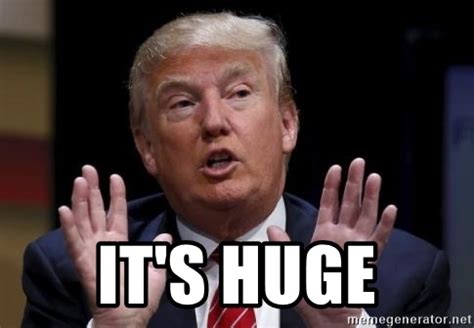
How does it feel to hear those sweet words, “Congratulations, you have been promoted to Sr. Engineer!”
Jubilant, euphoric, proud?
What if the words you hear after that sentence are, “It comes with an (only) $3000/year hike!”
Inside your mind, "What the..."
Still proud of the bump in the title but won’t you also feel being wronged. How can the promotion come with a salary increase that is so meager?
That is what Neil (name changed) experienced at the start of this year.
Neil is an engineer with two years of work experience. He and his company are based out of the US Midwest.
At the start of this year, Neil was offered a title promotion and a raise of $3,000/yr. He felt that there was a big gap in the number he was offered and the value he brought to the table.
So, he used Beyond Grad’s free Ultimate Guide to Negotiate a Raise to negotiate a raise of $12,000/yr!
Damn! Imagine how that would feel like?
It wasn’t like he requested more money and was approved instantly. He heard “no” many different ways in one conversation.
- “We believe we have offered you fair compensation.”
- “We had a word with the HR too and they said the number offered is appropriate.”
- “I cannot commit to any number. I will have to discuss it with the HR team.”
He answered all objections positively using the Triple-A technique from the ultimate guide.
The way he negotiated was so insightful, that I asked him to share a walk-through with all the Beyond Grad readers.
Here is the discussion according to Neil (edited only for flow and clarity).
Day -3: First Meeting with the Manager
(My manager asks me to join him in a meeting room)
Manager: “Hey Neil, how are you doing?”
Me: “Doing good, how about you?”
Manager: “Doing good too. I'm very happy to let you know that you have been promoted to a Senior Engineer position which comes with a salary raise. Congratulations!”
(He hands me the new offer letter. I read through the offer letter. The raise offered was just $3000/year with a Senior Engineer position.)
Me: “Thank you so much P. I really appreciate you and the management considering me for this position but I'd like to discuss the raise offered.”
Manager: “You have recently received a yearly raise but sure go ahead.” (The raise he mentions here is a 2% raise that I got to adjust for inflation.)
Me: “The raise you have offered is something I was not expecting. It is far away from what I had in my mind.”
Manager: “Do you have a number in your mind?”
(I had a number in my mind but having been put in the spot I had no idea at that very moment how to navigate the conversation. So I gave myself a leeway asking for some time.)
Me: “Yes, but I would like to justify the number. Can we set up a meeting with the director?”
Manager: “Okay. I will discuss it with M and schedule a meeting.”
(Varun: Wow! Neil maneuvered well out of a tough spot where he couldn’t back his ask with research -- quantitative or qualitative.)
Day -3 to Day -1: Research and building my briefcase
I anxiously started reading the Ultimate Guide to Negotiating a Raise.
I realized that I should have started preparing for this day a long time ago. I had to crunch 6 months of preparation efforts into 3 days. But the way the guide is structured, an overview of Stages III, IV, & V gave me a good direction on how to proceed.
As suggested in the guide, I started researching salary data from the Bureau of Labor Stats and private websites like Glassdoor, Salary.com, etc.
Using the Triple-A technique, I personalized the answers to common objections that come up during the negotiation.
Day 0: Salary Negotiation Day
(I was joined in the meeting room by Manager P and Director M.)
Me: “Good Morning M & P. I’d like to start by saying that I truly appreciate being offered a Senior Engineer position but the raise offered is not per my expectation.”
Manager: “You said you had a number in your mind. What is it?”
Me: “Yes, I would like to discuss that number but would like to start with my 2-year performance review. Here, these documents show my commitment to the work and the team. I have been a high performer and have delivered good results over the last two years. I believe the raise offered should be more than $3000.”
Director: “Yes, I know the kind of work you have been doing and have had positive feedback about you from P and other colleagues. But you see, we believe we have offered you fair compensation.”
Me: “Okay, but other than just my performance review I would like to state that I have been actively undertaking more tasks, providing product and design ideas worth protecting, and supporting internal and external customers. Is there a way we can move beyond $3000?”
Director: “We had a word with HR too and they said the number offered is appropriate.”
Me: “I would like to share some of the data that I have been researching. (Pulled out BLS data sheet per which I could expect a raise of about $10k.) This document says that the labor rate for my position is in this specific range. And I am expecting a raise of $13,000. Is there a way we can bridge this gap?”
Director: “This is something new to me. I haven’t looked at this before. I will have to discuss this with HR but a $13,000 raise is a bit too much. I don’t think it will get approved considering the company's compensation structure. We provide fair and competitive compensations to our employees.”
Me: “There’s more I would like to share. (Pulled out market data from private websites that list job postings and salaries for engineering positions.) This document shows what other companies are offering for a Sr Engg. position in our City and State. This closely matches with the BLS data. How can we bridge the gap?”
Director: “I cannot commit to any number. I will have to discuss it with HR.”
Me: “There’s one last thing I wanted to share. (Pulled out a calculation sheet which showed my salary was only increased to match inflation). This sheet shows the salary I had started with. I have been receiving a 2% match every year, which is in line with inflation. While it seems fair the value of my work has increased greatly above that.
Director: (Looks at all the documents for a while but stays silent.) “Thank you for doing this background research & providing these documents. I will still have to discuss it with HR.”
Me: “Thanks. I look forward to talking with you soon.
It was an exhilarating moment for me. Even though they were not committing to any numbers the Triple-A technique and the briefcase techniques had spun the right gears.
A couple of days later I was told by my director that they have agreed to raise the offer by $12,000/year.
He told me, “Happy to give you this raise. No one is here for fun, we also work for the pocketbook.”
I felt that my dedication was finally rewarded with fair compensation.
That’s a huge win!

Couldn't resist adding this meme.
Varun: So Neil, what does raising your salary enable you to do as compared to if you had just accepted the initial bump? And how does it feel?
Neil: The first and the obvious one is that the money will help me pay off education loans, increase savings, and give me some spending money.
The second benefit is the improved relationship with my manager/director. Their outlook towards me has changed since the negotiation. We have discussed my progression within the company and possible paths to reach the managerial/project engineer position.
The third being, the increase in the level of self-confidence and the rewarding feeling of being rightly compensated.
Had I accepted the initial offer, the feeling of discontentment would have stewed within me for months. It would have taken me another three years to reach the compensation that I have right now.
Varun: Thanks Neil for sharing a detailed walk-through with us today.
Here’s what I think Neil did extremely well:
- He leads with gratitude: “I’d like to start by saying that I truly appreciate being offered a Senior Engineer position.”
- He’s confident and keeps countering objections with salary data, past performance review, and the additional value he brings to the table.
- Mainly, he validated himself as a top performer, and then the salary data gave him leverage.
He doesn’t let the first objection derail his negotiation. He expects objections and understands that the first barrier is a mere start to the negotiation.
What was your biggest takeaway from Neil's case study? Please share it with us in the comments.
